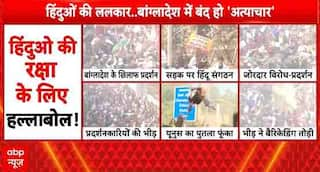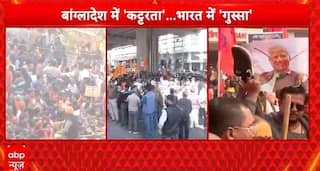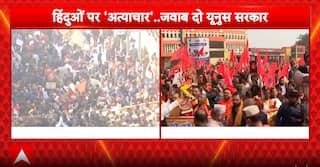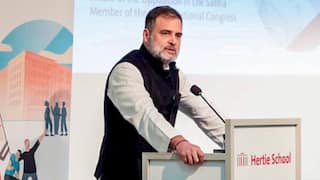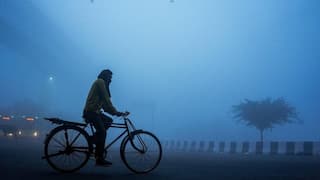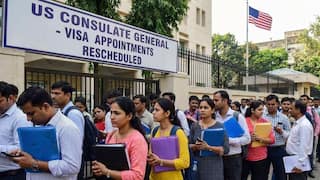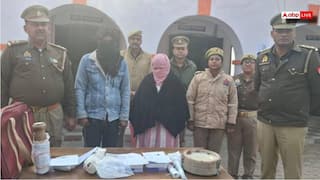Checking Mosquito Breeding, Fogging: Delhi Civic Body Braces Up For Dengue
With dengue's rise, Delhi civic authorities have stepped up their efforts ranging from checking mosquito breeding to fogging & spray anti-larval chemicals to limit the spread of vector-borne diseases.

With a spurt in dengue cases in the city, civic authorities have stepped up their efforts ranging from checking mosquito breeding to fogging and spray of anti-larval chemicals to control the spread of the vector borne diseases. According to officials of the Municipal Corporation of Delhi (MCD), special fogging drives are also being carried out at Ramlila grounds and Dussehra fair sites to control mosquito breeding.
A senior MCD official said authorities issued over 96,000 legal notices for mosquitogenic conditions, and over 35,000 challans have been issued against violators so far.
"We have intensified our inspections and have put the domestic breeding checkers (DBCs) and the field staff to conduct door-to-door inspections and spray anti-larval medicines. Anti-larval medicine has been sprayed at around 11 lakh houses while around 1.3 lakh houses were found to be positive for mosquito breeding. This year we have launched 35,668 prosecutions while 96,189 legal notices have been issued for mosquitogenic conditions," the official said.
According to a report released by the MCD on Monday, the number of dengue cases witnessed a sharp rise in September with more than 400 new infections being reported in the last week of the month.
A total of 693 cases of dengue were reported in last month till September 28. The tally of the vector-borne disease in the city stands at 937 so far this year, the report stated.
Officials said that the civic body has also identified nearly 200 mosquito breeding hotspots and it has intensified its fogging drive at these hotspots across the city.
In order to check mosquito breeding during ongoing festival season, we are carrying out fogging at 148 Ramlila grounds and 6,428 houses/places near Ramlila grounds in all 12 zones.
The civic body is also using biological control method to check mosquito breeding by releasing the larvivorous fish like Gambusia in water bodies.
Amid the continuous spurt in dengue cases, Chief Minister Arvind Kejriwal had last month said a plan has been devised to combat the vector-borne disease. He said that an awareness campaign will be launched and students will be roped in to aware masses about vector borne diseases.
Apart from the awareness campaign, the Delhi government has also identified 35 hospitals for early diagnosis and treatment of dengue.
Directions have been issued to departments like Delhi Jal Board and Irrigation and Flood Control to regularly clean water bodies and repair water pipelines to prevent any chances of water accumulation.
Municipal officials said due to favourable conditions like rain, humidity and optimum temperature, mosquito breeding takes place during this season. The Aedes Aegypti mosquito spreads diseases like dengue, malaria and chikungunya. Unattended waste articles like desert coolers, pots, tyres, etc get filled with water and provide ideal place for mosquito breeding.
Cases of vector-borne diseases such as dengue and malaria are usually reported between July and November, sometimes stretching till mid-December.
The New Delhi Municipal Council (NDMC) has also intensified its mosquito breeding checking campaign and fogging drives to control spread of dengue and other vector borne diseases.
With the increase in the number of dengue cases we have stepped up fogging and spraying of anti-larval medicines in areas under our jurisdiction. We are also prosecuting violators under the checking drives. Advisory has also been issued to the public as well as to NDMC departments to ensure that mosquetogenic conditions do not occur, a NDMC official said.
Of the 937 total cases recorded till September 28 this year, 75 were reported in August.
It is also the highest number of dengue cases logged during the January 1-September 28 period since 2017, when the corresponding figure was 2,152. No death has been reported so far this year due to the disease, the MCD report stated.
Last year, 9,613 dengue cases were recorded in the city, the highest since 2015, along with 23 deaths -- the maximum since 2016.
A total of 125 cases of malaria and 23 cases of chikungunya have also been reported this year in Delhi till September 28, the report said.
Civic bodies such as MCD and NDMC have also started mass awareness campaigns against vector-borne diseases by roping in resident welfare associations (RWAs).
During awareness campaign, the MCD has distributed 3,798 handbills, pasted 617 stickers, displayed 55 banners and organised awareness through public announcements at 82 places, civic officials said.
In 2015, the city had witnessed a massive dengue outbreak, with the number of cases crossing 10,600 in October. It was Delhi's worst dengue outbreak since 1996.
(This report has been published as part of the auto-generated syndicate wire feed. Apart from the headline, no editing has been done in the copy by ABP Live.)










